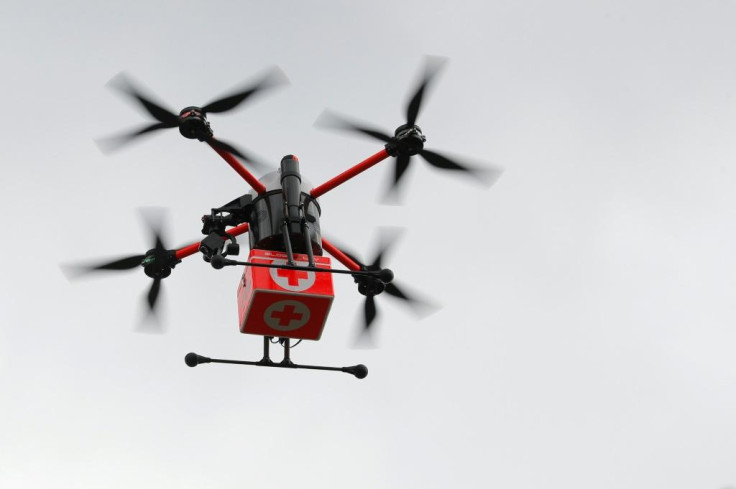Start-up medical drone delivery service receives backing from UK Space Agency
Similar to the ones that were introduced before it, the service will transport protective equipment, test kits, and samples to and from hospitals.
In an effort to reduce physical contact and cut travel time amid the COVID-19 pandemic, retailers and healthcare providers have considered the use of drones. In the past few months, there have been reports of groups in the United States and the United Kingdom that are conducting tests using these machines. The latest development involves trainee doctors whose drone delivery service – Apian -- is one of the projects that will receive funding from the British Space Agency.
Similar to the ones that were introduced before it, the service will transport protective equipment, test kits, and samples to and from hospitals. It could potentially allow more medical workers to help patients and complete timely deliveries and pickups. Since there is minimal person-to-person interaction, it should – in theory – minimise 2019 novel coronavirus transmissions.
The start-up service is founded by Christopher Law and Hammad Jeilani who are both trainee doctors. With the financial backing from the U.K. Space Agency, the two are now in the process of setting up the infrastructure in hospitals, warehouses, and laboratories. "Covid-19 has highlighted challenges in NHS supply chain logistics," said Law.
We're backing three more UK space-enabled businesses with £1.3 million in the response to #COVID19. 🛰ï¸
— UK Space Agency (@spacegovuk) October 17, 2020
Apian will use drones to carry test kits, samples and PPE, while @EarthBlox and @DriverNetTeam will deliver remote learning and community transport.
👉 https://t.co/0yEDJIqnlE pic.twitter.com/ULaFZQWP6E
"We are confident that by setting up a medical drone delivery service, we'll be able to fly samples to labs more regularly, reliably and quickly, improving patient health outcomes," he added. As with any activities that involved the flight over British air space the Civil Aviation Authority will oversee and its operations.
Instead of the quadcopter configuration, the drones used by Apian are a hybrid design. The overall form factor is that of fixed-wing aircraft with five propellers. This allows it to manoeuvre safely and travel long distances than standard models. To ensure that transport it unimpeded, the group will coordinate with the National Health Service (NHS) and regulators to establish a network of air corridors exclusively for its machines.

Each drone can transport a 2-kilogram payload and boast a range of roughly 97 kilometres. These are allowed to fly as high as 90 metres above ground level and can even handle most weather conditions. For its preliminary test flights, the approved routes will take it between Basildon Hospital, Pathology First Laboratory in Basildon, and Broomfield hospital.
© Copyright IBTimes 2025. All rights reserved.





















